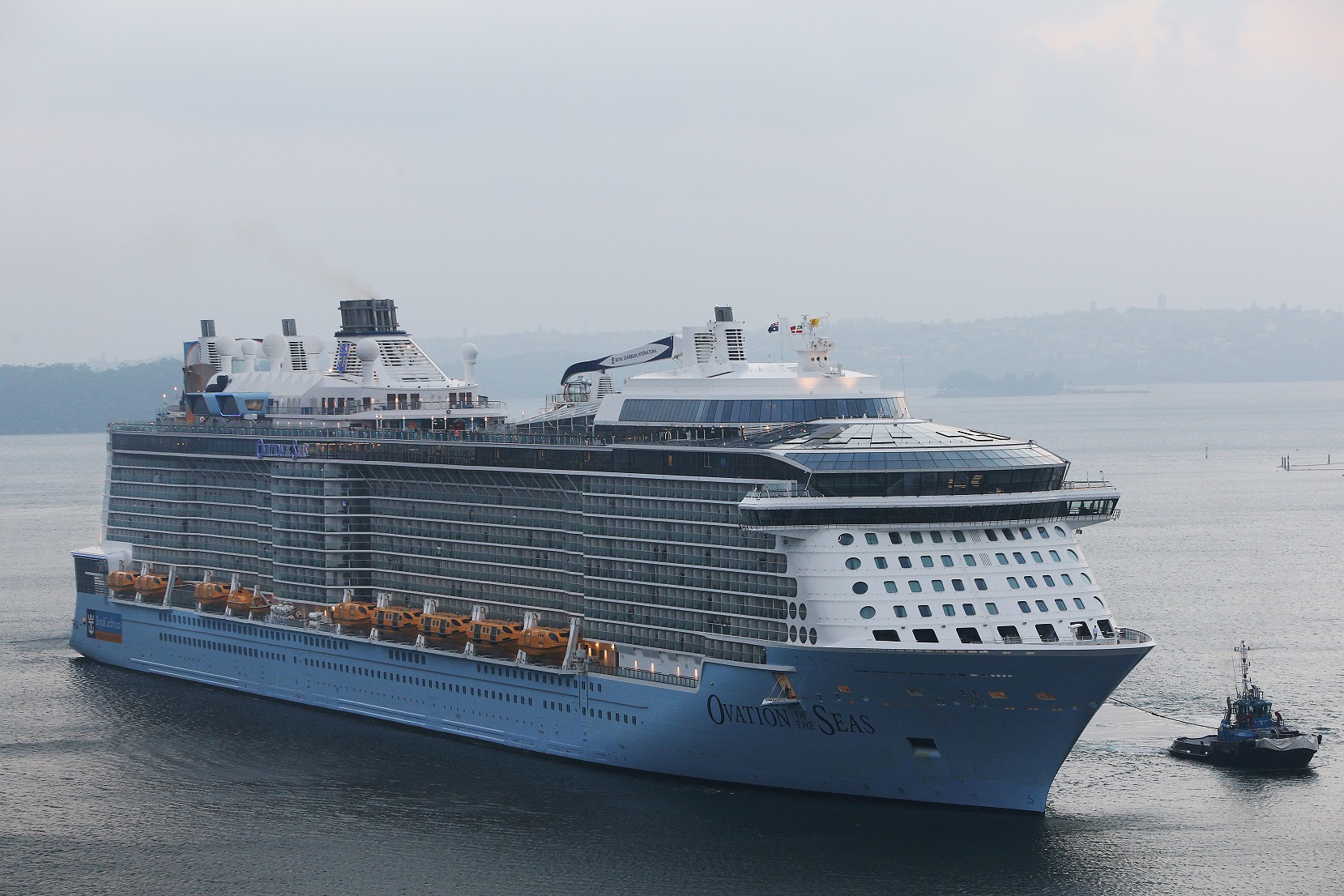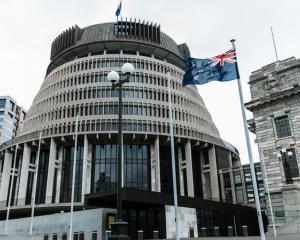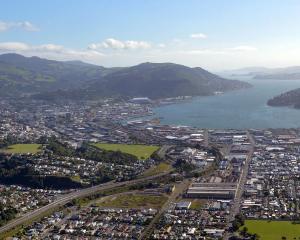
Cruise cancellations: no dismay right here
It was reported (ODT 27.11.23) that the Dunedin hospitality sector was "disappointed" when two more cruise ships "pulled the pin" on visits to the city in the last few days. Between them the two ships, Ovation of the Seas and the Pacific Adventurer, have a total capacity of 7000 passengers.
Speight’s Ale House owner and Hospitality New Zealand branch president Mark Scully was quoted as saying "Everybody looks forward to the cruise ships, so it’s always disappointing when they’re cancelled".
I would argue that not everyone was "disappointed" and as a small tourism operator myself I do feel entitled to comment.
Many people are not aware that the typical cruise ship passenger emits significantly more carbon dioxide per kilometre than an economy class plane passenger. This is because their diesel engines are always on – even in port – to provide power for the pokie machines and the waterslides etc.
Cruise ships don’t just pollute the air. They pollute the water, too. On top of the grey water they discharge into the oceans, often filled with chemicals, they have been known to illegally dump oil, plastic waste and other contaminated waste and to falsify their log books to hide these actions.
These giant ships are also vectors for the transmission of disease. In 2020 the Diamond Princess caught a bad case of Covid. Over 700 of the 3711 people on board got the virus and about 14 of them died.
Are the financial bonuses for some local businesses really worth these environmental impacts and health risks? Perhaps cruise ships aren’t so cruisy after all?
Opinions welcome
I am pleasantly surprised that the Otago Daily Times has been willing to publish a few opinion pieces about what is really going on in Gaza and the reluctance of various governments, including our own, to call on the Israeli government’s ongoing potential genocidal actions in Gaza (ODT, 13.11.23 and 24.11.23). I have no doubt that some readers might find these articles unjust, but the silent majority of New Zealanders might agree with these views. I am also impressed by the role of some of the minor political parties to stand up and make their views known, instead of being scared to be accused of being anti-Semitic.
Gaza settlements
Your editorial (ODT 22.11.23) aimed to find a balanced path through the complexities of Israel-Gaza conflict and for the most part, it achieved this.
However, a glaring error was made when the writer referred to "Palestinian settlers" in the West Bank. It is, of course, the Israelis who are the settlers. The ongoing construction of illegal Israeli settlements in the West Bank, on Palestinian land, is a major provocation and underlying cause of the ongoing tensions. Added to this is the aggression faced on a daily basis by Palestinians, from Israeli settlers, who attack and intimidate them and destroy olive plantations. This violence has worsened during the current escalation of hostilities. If a two-state solution is to remain at all viable, the building of Israeli settlements in the West Bank must end.
Collateral damage
There is something of a flaw in the humanity of modern man. He can slaughter a lamb, with the option of many an alternative protein plan. And where the death of an infant is simply collateral damage in a cultural/religious war plan.
Smoking rules and the value of human life
Congratulations for the editorial (ODT 27.11.23) regarding the relaxation of anti-smoking regulations. At the ripe old age of 79 I had thought I had seen every example of political machinations where politics and money intersect, but the gold medal award surely goes to this coalition.
Regretfully, our incredibly complex human brain loves stimulation and enjoyment, incurred by sport, falling in love, gambling, intake of a variety of chemicals, ( drugs) etc. The "feel good" of addiction. The earlier one can expose a human brain to addictive behaviour, the earlier the addict, e.g. high sugar content in fast food. Obviously, if you can incur addiction at an early age, then you have a lifetime customer and a guaranteed source of income. Multiply this by millions and the answer is of course billion-dollar profits. Secondly, our ability to make correct decisions (logic) can occur early for some, but later in others.
Nicotine is one of the most addicting chemicals available for human consumption and this was shown years ago in the protracted court cases in the USA where after years of litigation vast sums of damages were awarded. This changed attitudes from governments worldwide as new anti-smoking laws were introduced.
Many advocates of self-restraint may argue that the problems are self-incurred. In general, we look to our governments to legislate in order to protect us from this type of exploitation. Regretfully, between billion-dollar profits and Western legal systems, this never happens.
It is not without some trepidation we can look to our legal system to protect us. As one example during the last two decades, a USA pharmaceutical company marketing a highly addictive pain killer was ordered to pay $8 billion in damages.
As a positive, I suggest we may have been given a foresight as to what value this coalition places on human life.
The people have decided, and wisely so
The latter part of Winston Churchill’s misquoted "never apologise, never explain" quip was illustrated amply by Andrew Simms’ selective response (ODT 28.11.23) to my opinion piece on the Taieri Gorge Railway (ODT 24.11.23).
Not once did he engage with, indeed he avoided, the core facts in the opinion piece. For example, he cites the price of a ticket on Dunedin Railways as an expensive cost. Yet, whilst advocating cycling as a cheap alternative, he yet again neglects to mention the cost of purchasing bicycles for a family of four, nor the cost of the clothing and associated accessories. Even the cheapest options can cost many thousands of dollars.
Indeed, it appears the elderly, the disabled, the unwell, and the time-poor professionals of Dunedin, be they doctors and nurses at our hospital, accountants and solicitors in our CBD, or the tradies who are the hardworking backbone of our city and nation, are not worthy of mention. Time-poor, and with many bills due to the rising cost of living, unable to afford the four-figure price tag that cycling comes with, they are the reality at odds with Andrew Simms’ wish.
Importantly, when citing Benje Patterson’s 2019 report, he chose not to mention the concerned responses to the report. Nor does he mention the plethora of research that supports the railway. Whilst a year is a long time in politics, four years is an even longer time in post Covid-19 Dunedin and the economic landscape of the city is now very different. Indeed, the very setup that is Dunedin Railways has also changed greatly and once more, this was not acknowledged.
The council wants the train. Opinion polls time and time again show the diverse population of Dunedin want the train. Andrew Simms wants the city to gift him a new cycleway. As for me, I believe strongly in democracy and the ability of ordinary people to decide for themselves based on the facts.
And they have chosen wisely.
Address Letters to the Editor to: Otago Daily Times, PO Box 517, 52-56 Lower Stuart St, Dunedin. Email: editor@odt.co.nz












